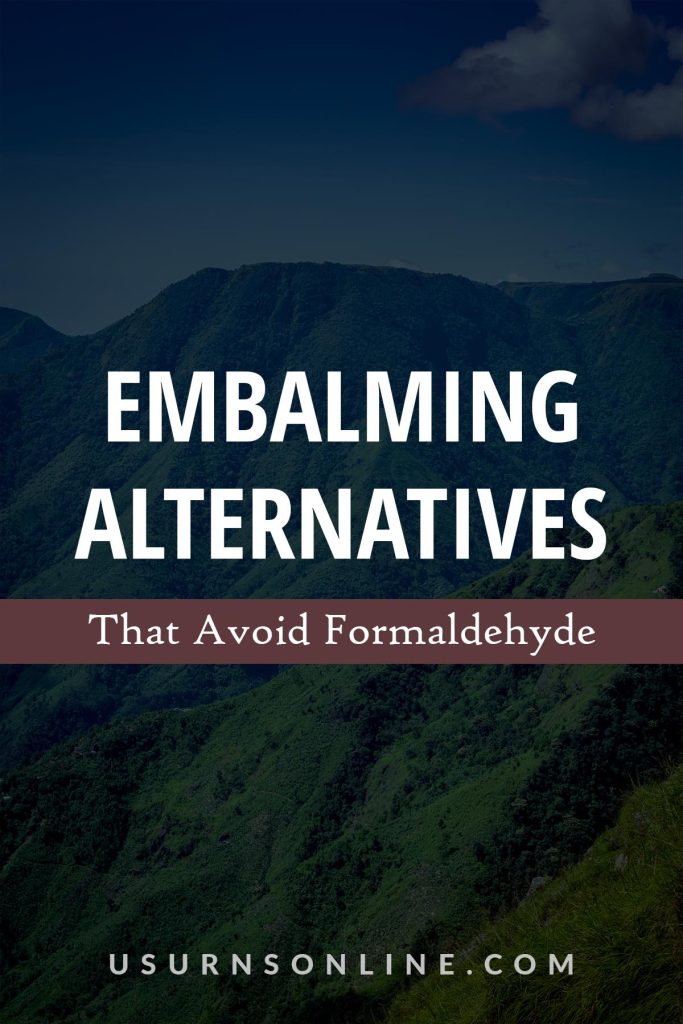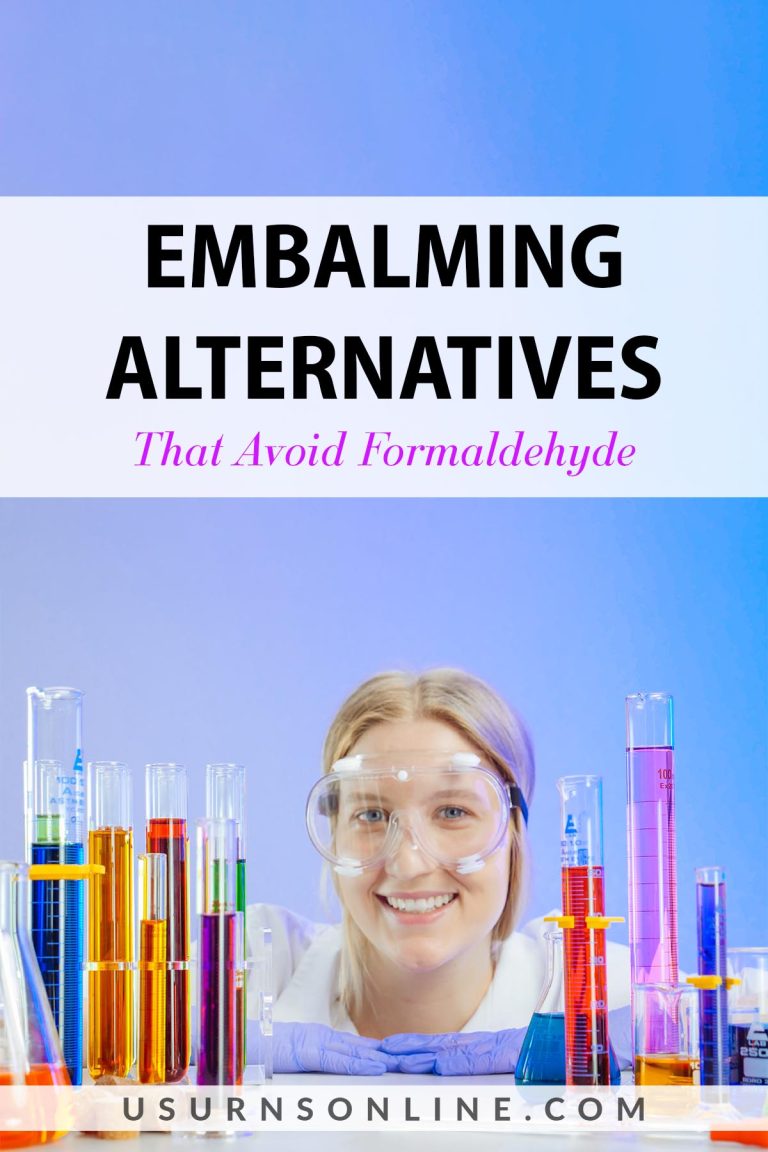Embalming is still a very common and popular option provided by funeral homes and morticians.
But the standard embalming practice uses formaldehyde, which has many downsides and we think it’s on the way out. Here we take a look at embalming alternatives that avoid formaldehyde.
A Bit About Embalming
What is embalming?
Embalming is the process by which the decedent’s bodily fluids are removed, and replaced by a chemical agent to temporarily restore a life-like appearance.
The embalming agent is usually a solution of formaldehyde and other chemicals, plus the additional chemicals used on the outside of the body (think makeup).
The embalming process uses many toxic and even carcinogenic chemicals, takes time and skill, and adds a significant amount to the cost of a funeral. Typically, embalming fluid contains a mixture of formaldehyde, glutaraldehyde, methanol, and other solvents. The formaldehyde content generally ranges from 5 to 37 percent and the methanol content may range from 9 to 56 percent.
What is formaldehyde?
Formaldehyde is a naturally occurring organic compound with the formula CH2O. It is highly toxic to humans and animals, regardless of method of intake.
Embalming fluids that use formaldehyde are not only expensive and terrible for the environment, but are also linked to cancer.
Embalming Alternatives That Avoid Formaldehyde
Let’s talk about some alternative methods for body preservation.
Enigma Ecobalming
This product is a natural, eco-friendly alternative that allows the mortician to embalm without using formaldehyde. It’s available through many major funeral product suppliers, so ask your local funeral home if this is (or a similar product) an available option.
Refrigeration
Many mortuaries offer refrigeration, which will slow down the decay process while you arrange the funeral. This can add a few days to the time after death prior to when the body will need to be buried or cremated. Refrigeration is perhaps the most eco-friendly alternative to embalming.
Urns Made in the USA
Dry Ice
If you do not have access to refrigeration with enough space, a body can be briefly preserved by keeping it on dry ice. This, much like with refrigeration, slows down the decay of the body after death and is a workable alternative to embalming when you would like to have a viewing.
Direct Cremation
Direct cremation means that the decedent’s body is cremated ‘directly’ after death, without a prior memorial service and without the involvement of a funeral home. Direct cremation skips the embalming process because there is no need to preserve the body.
If you are looking for a way to preserve the body briefly after death, you will need to use the above methods as a true alternative to embalming prior to direct cremation.
If you choose direct cremation, you’ll probably need a cremation urn. Shop cremation urns and eco-friendly cremation urns.
Immediate Burial
Also known as direct burial, this simply means burying the body as soon as reasonably possible after death.
Again, as with direct cremation, this is not a true alternative to embalming but rather a part of the process used when avoiding embalming with formaldehyde or other toxic chemicals.
Urban Death Project
We’ve chronicled the Urban Death Project here under the heading of “Compost Based Renewal.” This is a unique project that welcomes the process of decay as part of the natural cycle of things.
Look for more embalming alternatives that avoid formaldehyde like this one to appear, eventually new ways of final disposition will normalize as we work together to help each other and this world in which we live.
Read Next: Traditional & Non-Traditional Burials






Hello, I am a formulation chemist and looking at alternatives to Formaldehyde. We know the risk involved using Formaldehyde and I am looking at possible alternatives in a micro-emulsion type formulation. This is a new area to us, but any thoughts?
Kindest regards
Gary Hepburn BSc. CSRT
Hello, I am a formulation chemist and looking at alternatives to Formaldehyde. We know the risk involved using Formaldehyde and I am looking at possible alternatives in a micro-emulsion type formulation. This is a new area to us, but any thoughts?
Kindest regards
Gary Hepburn BSc. CSRT
Hey Gary,
You’re already way beyond us non-chemists! We rely on info from professionals like yourself, so you would really need to contact the manufacturers of the products we mention above, mortuary science teachers, or other chemists in your field. Hope this helps!
Hey Gary,
You’re already way beyond us non-chemists! We rely on info from professionals like yourself, so you would really need to contact the manufacturers of the products we mention above, mortuary science teachers, or other chemists in your field. Hope this helps!
HCHO free chemicals do exist. Even Green Chemicals exist. Funny enough, the oldest embalming chemical company was the first company to realize the dangers of HCHO. The Champion Company, of Springfield, OH does currently make lower HCHO chemicals, HCHO free chemicals and even 100% Green Enigma Embalming Chemicals.
Thanks for posting this information about HCHO free Chems look forward to seeing more on their uses and hearing feedback from embalmers.
Great post thankyou!